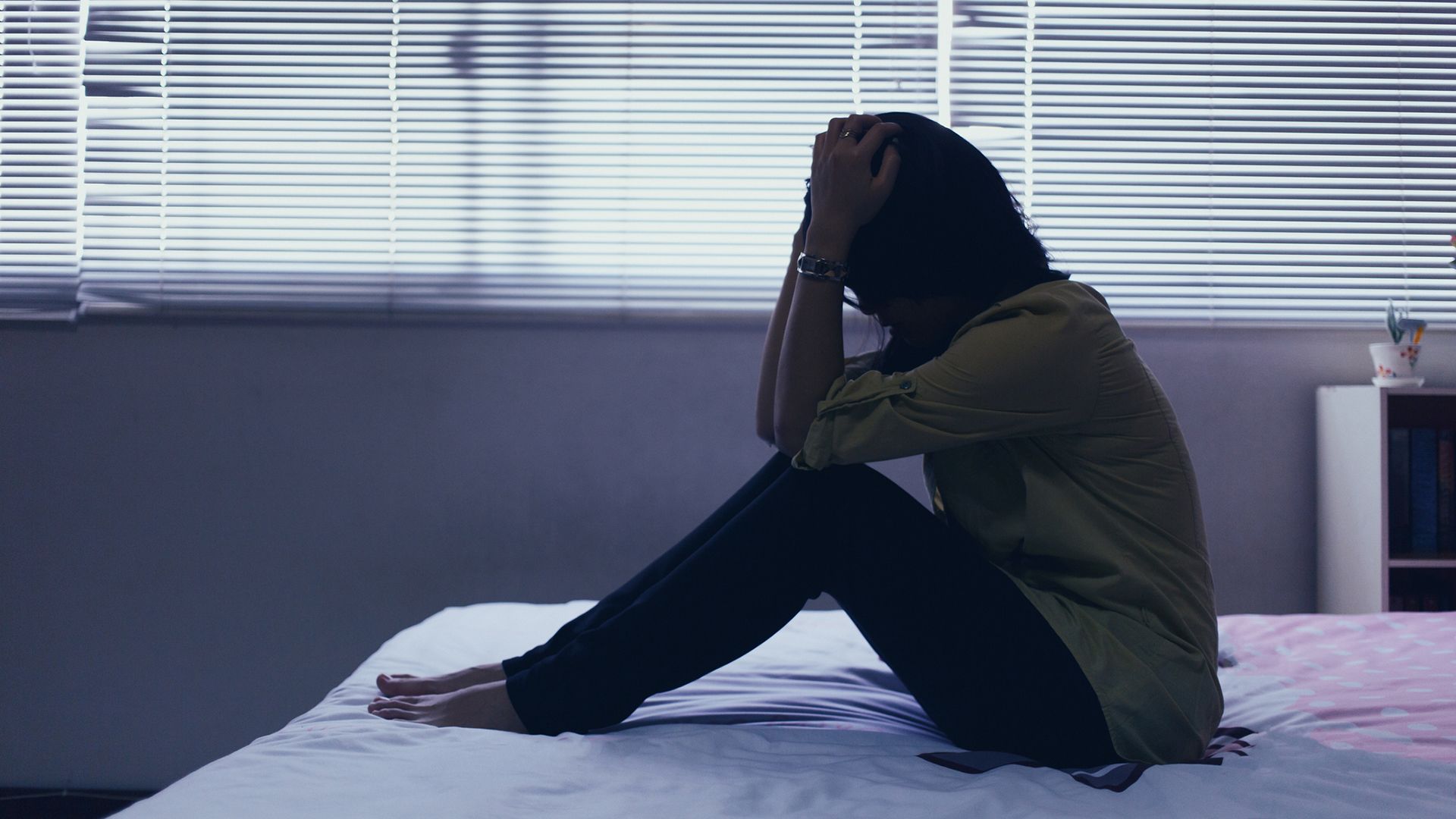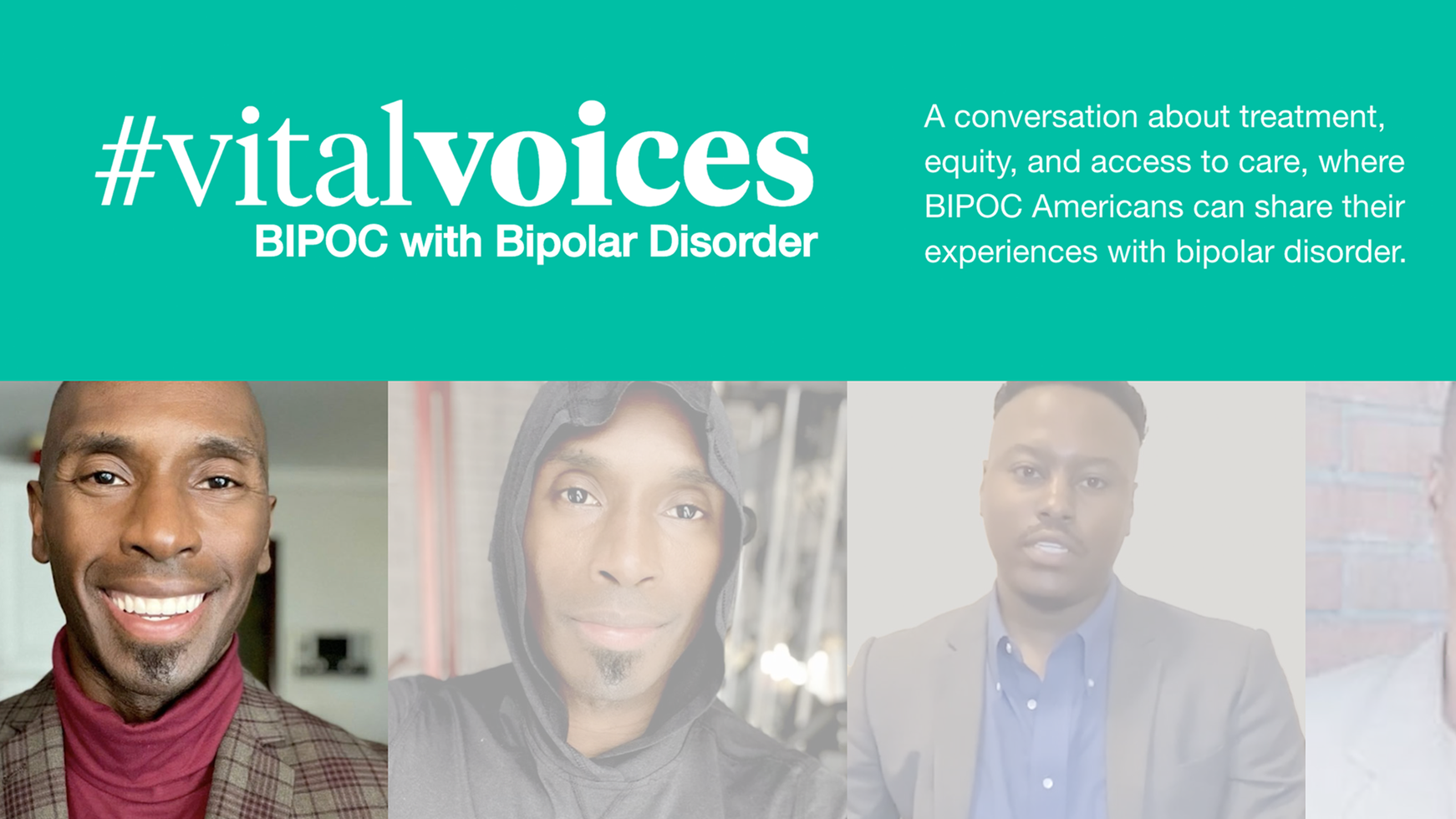Updated on October 25, 2024
For some bipolar disorder patients, treatment is a journey explored over time.

Transcript
I felt like for a really long time when it came to treatment I was a diagnosis and not an individual.
[MUSIC PLAYING]
JEN CAUDLE: You know, Dr. Sportelli, I'd love it if you could talk a little bit about treatment options, and just sort of walk us through what some of the options are and how they range.
When someone's in acute mania, we need to slow that down. And we do have some psychopharmacology ways
to do that, and pretty much the gold standard at this point is a mood stabilizer. The other option would be a group of medications
called antipsychotics. And I know they're called antipsychotics, but they do help with bipolar quite a bit. These medicines also can bring down that manic episode
and give you a firmer footing and a foundation to work on the other aspects of your life, right? The pills, the medication helps.
There is no doubt that it helps, but you have to change your lifestyle. We know that exercise helps when you're
in a depressive phase-- you know, 20 or 30 minutes of cardiovascular exercise each day, getting outside, having family support and peer support,
and surrounding yourself with the right people who are educated about bipolar disorder works. So we do have a lot of options.
The treatment that has worked for me is getting on medication, but that journey getting to medication took way too long.
So part of my treatment, and the way in which I work with my doctors, it's really a collaboration where I have a voice.
Because to truly treat me in the way that I can thrive in life, you have to know who I am.
You have to know me as an individual. So for treatment options, medication, I experimented.
I was very assertive with my doctors. If I wasn't feeling it, I went back in, you know?
And if I didn't feel that they were seeing me and listening to me, I found someone else.
And now I have found that team, and it's great. One of the biggest things is-- for treatment is peer support
and support groups. I go to support groups three times a week. And I need my, you know, my people,
and they're, like, a reflection to me because we have this bond. And when you can see other individuals like you that
talk about it, that is really what has helped me on my journey in accepting it and getting
and staying on medications. But then again, of course, also lifestyle and all of that-- but I think that community is something
that is part of treatment, and that's pivotal to your success as someone living with a mental illness.
Right. Unlike Hannah, I was not forward about my choice in health care and physician early on.
I was very passive about that, early on. I didn't have the capacity to be my own-- you know,
be in my own corner for that. I lucked out and I got reassigned to a doctor who really was on top of it, cared a ton,
was willing to explore things, ask questions. And I'll tell you, one thing I learned from interacting with her is that you just have to arrive
at a place in your mind-- again, this is that mindset where you need to believe and actually act
as though you are your doctor's best patient. You pay attention. If something's not working, you communicate.
You try, try, try, and then you just-- you keep it all moving. Like, you always keep the appointments booked, you always touch base.
If you're not going to make it, you always book the next appointment. It's, like, so beneficial to put that effort into that relationship, because it's going to trickle down
into everything else. [MUSIC PLAYING]




